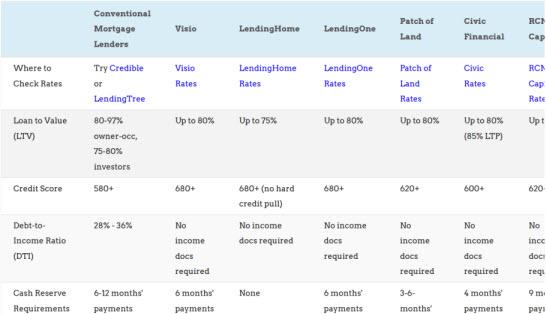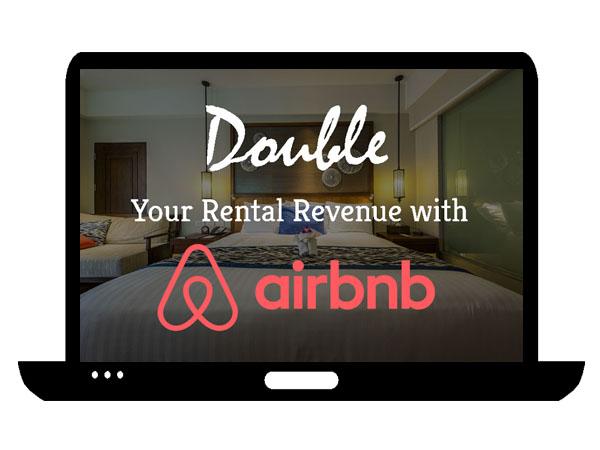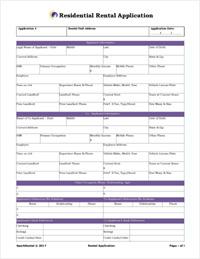The Big Picture on Real Estate Investing Strategies:
-
- Real estate investment strategies vary widely, from residential rental properties to commercial real estate and raw land, each with unique benefits and challenges.
- Proper due diligence, including understanding local market conditions, financing options, and legal requirements, is crucial to successful real estate investing.
- Diversifying real estate investments can help mitigate risks and provide more stable returns over the long term.
Disclaimer
The information provided on this website is for general informational purposes only and should not be construed as legal, financial, or investment advice.
Always consult a licensed real estate consultant and/or financial advisor about your investment decisions.
Real estate investing involves risks; past performance does not indicate future results. We make no representations or warranties about the accuracy or reliability of the information provided.
Our articles may have affiliate links. If you click on an affiliate link, the affiliate may compensate our website at no cost to you. You can view our Privacy Policy here for more information.

I love real estate investments as a source of income. Whether you’re looking to earn a quick return through wholesaling or flipping, or earn ongoing passive income from rental properties, there are dozens of strategies for real estate investing.
Real estate investments make a particularly effective source of income for financial independence and/or retiring early (FIRE). If, that is, you know what you’re doing, and if you diversify your investment portfolio to include a wide range of stocks, real estate, and other asset classes.
So, let’s talk about the different strategies for real estate investing and the best types of investment properties available to you.
Common Examples of Real Estate Investments
Most real estate investment assets fall into one of three classes:
| Type of Real Estate | Description |
|---|---|
| Residential | Properties with 1-4 units. This type of real estate investment is most regulated and the most popular among mom-and-pop investors. |
| Commercial | This wide umbrella includes multifamily (5+ units) apartment buildings, office space, retail, industrial, and other types of commercial real estate. |
| Land | From completely raw land to semi-developed land to working farms, land can make an extremely profitable investment, but it comes with its own quirks and niche knowledge required. |
Strategies for Real Estate Investing

As you expand and diversify your real estate portfolio, consider the following strategies for real estate investing, and learn about different types of real estate investments.
More diversity means less risk, and less exposure to shocks in any one real estate market!
1. Buy-and-Hold: Long-Term Leasing
Deni and I have over 50 years of long-term landlord experience between us. And that says nothing of our other team members, most of whom own rentals in their own right.
Long-term leasing represents the most common buy-and-hold real estate strategy, where you sign a lease agreement for a tenant who plans to stay for at least a year. Because most of the costs and headaches of owning rentals hit during turnovers, the most successful landlords aim to place excellent tenants and then keep them as long as possible.
Buy-and-hold landlords benefit from a wide range of rental property tax deductions, too. From mortgage interest to maintenance, property management fees to insurance and property taxes, every cost is deductible. Landlords can even deduct for paper expenses like depreciation!
Investors can buy turnkey properties ready to rent, or buy fixer-uppers using the BRRRR method and re-borrow most of their down payment when they refinance with an investment property loan. And in today’s world, real estate investors have more financing options than ever before.
From conventional mortgage lenders to portfolio lenders, from HELOCs to unsecured business lines of credit, investors can compare all investment property loan options before choosing one. In fact, many portfolio lenders allow the down payment to be borrowed, unlike conventional mortgage lenders.
Of course, new investors need to be careful not to overleverage themselves with high mortgage payments and negative cash flow. But one enormous advantage to rental properties as an investment is the predictability of returns: investors can forecast their average monthly cash flow with a rental income calculator.
When you know how to accurately calculate a long-term rental property’s cash flow, you can avoid ever making a bad investment again.
2. Buy-and-Hold: Short-Term Rentals
With the explosion in popularity of Airbnb and similar vacation-rental-by-owner websites, more landlords have started trying their hand at the hospitality industry.
Which comes with its own pros and cons, like all real estate investing strategies. Landlords in some markets can earn higher profits, but at the cost of dramatically higher labor.
Units must be cleaned between each guest’s stay, and you or your property manager must maintain constant contact with guests and future guests.
Landlords must also provide furniture, decorations, and utilities including electric, gas, water, and internet.
As with long-term rental properties, landlords should run the numbers carefully before committing to furnishing a unit and launching their own micro-hospitality business.
Pay particular attention to vacancy rates, getting accurate figures for every single month of the year. Remember, many vacation rental markets are seasonal.
Property owners can outsource labor to a property management company, just like long-term landlords. Make sure you budget for property management fees alongside other expenses like maintenance costs and vacancy rate!
Like every type of real estate investing, vacation rentals require their own unique skill set. If you’re new to the industry, read up on these 12 Secrets to Success for New Airbnb Landlords.
3. House Hacking
Who wouldn’t want to score free housing? At its core, house hacking means finding a way to have someone else pay your housing expenses, and is one of the best strategies for real estate investing.
The classic house hacking model involves buying a small multifamily property, moving into one unit, and renting out the other(s). Ideally, the rent from your neighbor(s) covers your own mortgage and other property-related expenses. (Read this duplex house hacking case study for a detailed example.)
But that’s far from the only option to house hack. I’ve rented to housemates, who paid the majority of my mortgage. Deni has hosted a foreign exchange student, whose stipend covers her mortgage. My friend Renee rents out her spare bedroom on Airbnb.
The list of ideas goes on. We’ve hosted webinars with families who reached financial independence in under five years through serial house hacking, moving into one multifamily property after another.
Regardless of how you do it, you can finance the property with an owner-occupied mortgage. That means lower interest rates, lower down payments, and lower fees than investment property loans. Compare today’s interest rates and fees on Credible.
Play around with our free house hacking calculator to get a sense for how much of your housing expenses you can cover with different house hacking scenarios. As your largest personal expense, cutting your housing costs offers the greatest opportunity for savings.
If you’ve ever wondered how to invest in real estate when first getting started, house hacking makes a great first strategy for real estate investing.
4. Fractional Ownership in Rental Properties
In today’s world, you don’t have to shell out $300,000 to buy a rental property. Or even $60,000 for a 20% down payment on a rental property. Small real estate investments are now totally possible!
Instead, you can buy fractional ownership in properties through some real estate crowdfunding platforms. You buy an ownership share in a rental property for $20, or $50, or $100. That lets you spread a few hundred dollars over many properties, for broad diversification across several cities and states.
You collect rental income in the form of distributions while you own the property. When the property sells, you also collect capital gains from appreciation.
Some crowdfunding platforms, such as Ark7 and Lofty, let you sell your shares at any time. Others, such as Arrived, hold the properties for five to seven years before selling and paying out fractional owners. Arrived even offers short-term vacation rental properties, to help you diversify even further.
Accredited investors can also buy shares in entire portfolios of rental properties through Roofstock One. The more money you have, the more real estate investment strategies open up for you.
5. Fractional Ownership in Commercial Properties (Syndications)
Heard that apartment complexes pay huge returns, but don’t have $50 million lying around to invest in them? Few people do. So
Instead, a commercial investor will take out a loan to cover 50-75% of the purchase price, contribute some of their own money to the down payment, and raise the rest from passive investors like you and me. This type of real estate investment is called a real estate syndication, and it’s one of the best kept secrets in the industry.
As a passive investor, you become a fractional owner in a large apartment community or other commercial property. You collect cash flow and distributions while owning the property, then get a hefty paycheck when the property sells.
Real estate syndications routinely pay 15-50% returns, and come with all the tax deductions of rental properties, along with other tax benefits like accelerated depreciation.
Some syndicators refinance the property to return passive investors’ capital to them, opening the possibility of infinite returns. You get your initial investment back, but you keep your ownership interest. You keep collecting cash flow, which continues to rise over time. When the property finally sells, you get another big payout. As far as strategies for real estate investments go, this sounds like a good one.
However, real estate syndications do come with several big drawbacks. First, they’re long-term investments with no liquidity: once you invest, your money is locked up until the syndicator sells or refinances the property.
But the greater challenge for middle-class investors is the high minimum investment, usually $50,000 – $100,000. To get over that hurdle, we created a investment club for group real estate investments, where we pool our money to invest in these types of syndications.
(article continues below)
6. Private Equity Funds
Some real estate syndications own multiple properties, perhaps even many different types of properties.
Unfortunately, these private equity funds usually only allow wealthy accredited investors to participate. But when you reach accredited investor status, the doors open wide for high-return investments such as private equity funds, hedge funds, opportunity funds, and other privately managed funds.
Why only accredited investors? Because rich people don’t get the same protections and oversight from the SEC. That’s the price of protection for lower- and middle-class investors: if you want aggressive regulation and consumer protections, it means you forego the opportunity to invest in higher-risk, lower-oversight investments.
The types of real estate investments that the rich opt into, because they can opt out of protectionist regulation.
Not rich (yet)? You have plenty of other options for types of real estate investment.
 7. Land
7. Land
Here’s one of the more unique strategies for real estate investing: You can buy a parcel of land for a few hundred dollars. And that’s just the beginning of land investing benefits.
First, land owners don’t have to worry about the same legal requirements and regulation headaches as residential landlords. No rent control, no lengthy eviction process taking months, no right of first refusal.
And let’s face it, there’s only so much damage a renter can do to raw land. But I’ve had tenants do $30,000 in damage to my rental properties before.
Because you can buy raw land inexpensively, it reduces the minimum cash requirement. That in turn makes it easier for investors to diversify, spreading money among many parcels if they wish.
To this day, few investors venture into land, leaving the competition relatively low. I’ve interviewed land investors who replaced their day job income in under 18 months with land.
Still, land investing requires a unique set of skills. New land investors can fall for scams easily, without a solid foundation in land investing. Before committing to this strategy for real estate investing, make sure you learn the ropes (I recommend REtipster’s land investing course) to learn exactly how to do it properly, so you make money rather than lose it.
8. House Flipping
Flipping houses became a wildly popular type of real estate investing in the housing bubble of the noughties, then quieted quickly when the bubble burst. Given the explosive growth in housing post-recovery, flipping regained its popularity in the 2010s and during the pandemic (although enthusiasm started waning in 2022 and beyond, as home prices started cooling).
Done right, buying fixer-uppers can lead to predictable fast returns. Done wrong, it can lead to disastrously expensive mistakes.
Where many new flippers run into trouble is underestimating expenses and overestimating the after-repair value (ARV). They take contractors at their word for quotes, not accounting for the all-too-frequent “surprise” expenses midway through renovation projects. They underestimate soft costs such as carrying costs and marketing costs.
If you’re interested in flipping single-family homes, focus on two skill sets first: finding good deals on properties, and hiring, managing, and negotiating with contractors. And always, always budget a buffer for the renovation costing more and taking longer than quoted.
One area that doesn’t prove a challenge in this real estate strategy? Financing. You can get short-term fix-and-flip loans from lenders like Kiavi, LendingOne, and New Silver – see our full comparison chart on our investment property loans page.
9. Live-In Flips
Another way to house hack includes doing a live-in flip, where you move into a fixer-upper, update it over the course of a year or two, and then sell it for a (hopefully large) profit.
On the plus side, you can take the repairs at your own pace, knocking them out as you have time. If you’re handy, you can do some or all of the work yourself and same money.
You can also avoid short-term capital gains tax, and perhaps all capital gains taxes. If you own an asset for more than a year, you pay the lower long-term capital gains rate on profits. And if you live in a property for at least two out of the last five years, your first $250,000 in gains ($500,000 if you’re married) are tax-free.
Or, of course, you keep it as a rental. Think of it as a live-in BRRRR property.
As a downside, you also have to live in a semi-permanent state of construction and renovation. I can see your spouse scowling already at the thought.
If you love home improvement projects and you’re looking for how to invest in real estate as a beginner, live-in flips offer a fun, hands-on strategy for real estate investing.
10. Wholesaling
When new investors first learn about real estate wholesaling, many think it sounds too good to be true.
That’s because they don’t realize how much work it is to find great deals on properties. Or to build a buyer’s list of active real estate investors.
Still, as real estate investing strategies go, it makes for a great model. Wholesalers find a good deal on a property, put it under contract, then sell the rights to that contract to a real estate investor. The wholesaler never actually takes title to the property themselves.
That means they don’t need to worry about financing or investment property loans, don’t need to hassle with screening tenants or property damage, or fielding 3 AM phone calls about roof leaks. They don’t pay any closing costs, and they don’t take on any headaches of property ownership.
Real estate wholesalers need to do two things well: find excellent deals, and build a network of investors to buy those deals. A sample wholesaling deal might look like this – the wholesaler finds a fixer-upper worth $100,000 as-is, and they put it under contract for $80,000.
They send an email blast to their list of investors, offering the property for $90,000. Several investors express interest, and they end up selling the contract for $87,000, earning a $7,000 spread over their own contract price.
Not a bad business model, eh?
(article continues below)
11. Stocks, Mutual Funds, & ETFs Related to Real Estate
Not all types of real estate investments involve contracts or settlements or direct ownership of property.
Large segments of the economy thrive in strong real estate markets. That means you can easily invest money indirectly in real estate by investing in companies or funds that do well when real estate markets do likewise.
Real estate developers offer a simple example, as do home improvement retail chains. Lumber companies boom in hot housing markets that drive more homebuilding. Nationwide real estate brokerages make for another obvious example. Less obviously, hotel chains own a massive amount of real estate.
You can buy shares in these companies or exchange-traded funds (ETFs) through your brokerage, which means you can invest with very little cash. These investments also come with instant liquidity: you can buy and sell instantly.
But these real estate-related companies aren’t the only way to invest in real estate on public stock exchanges.
12. Publicly Traded REITs
Through your regular brokerage account or even your tax-sheltered retirement accounts, you can buy shares in public real estate investment trusts (REITs). It makes for a fast, easy way to diversify into real estate.
Like stocks and other publicly traded investments, REITs offer excellent liquidity. You can buy and sell instantly, with no commissions on many brokerage accounts (I personally use Charles Schwab, which doesn’t charge commissions).
REITs tend to pay extremely high dividend yields, because by law, they must pay out at least 90% of profits to shareholders in the form of dividends. That makes it difficult for REIT managers to buy new properties however, so REITs don’t tend to grow and appreciate in value as fast as traditional stocks or funds. And the downside of that instant liquidity is volatility: REIT prices can plummet in value overnight, just like stocks.
Because they trade on stock exchanges, REITs tend to move more in line with stock markets than other types of real estate investments. So while you can add diversification to your portfolio by buying them, you don’t escape the correlation with stock market movements.
13. Private REITs
Out of the many strategies for real estate investing, private RETs are more recent type. Privately-traded REITs largely grew out of the real estate crowdfunding industry over the last decade. These REITs don’t trade on public stock exchanges; you buy them directly from the crowdfunding company.
Many buy and manage large apartment buildings, retail space, office buildings, or other commercial property types. Some also invest in real estate-secured debt, to add more income potential for shareholders. But none are very liquid — it’s not quick or easy to sell shares, and some lock investors in for periods of five years or longer.
That lack of liquidity forms a double-edged sword. It makes these real estate funds long-term investments that are hard to sell quickly. But it also reduces volatility.
I personally invest in a few private REITs to further diversify my portfolio. I invest with Streitwise and Fundrise, and have been happy with the results so far. But be careful to do your homework carefully on real estate crowdfunding platforms, and note that many only allow participation by accredited investors (wealthy investors with over $1,000,000 in investable net worth or $200,000/year income).
Private REITs offer a great strategy for real estate investing that spreads money across many projects. You can diversify beyond residential property to include commercial real estate. Just don’t expect to sell shares at a moment’s notice with this strategy for real estate investing.
14. Crowdfunded Real Estate Loans
Not all real estate crowdfunding websites follow the private REIT model. Others make loans to real estate investors funded by individual investors like you.
It works like this: A real estate investor needs a purchase-rehab loan to flip a house or renovate a BRRRR property. They apply with the crowdfunding lender, who approves and funds their loan. The crowdfunding lender then raises money from the public to reimburse their coffers.
In some cases, you simply invest in a pooled fund that owns many loans. Concreit follows this model, paying a fixed 6.5% dividend yield (paid weekly) as of 2024. Best of all, they let you pull out your money at any time, with no penalty fee on your principal.
Other crowdfunding platforms let you pick and choose individual loans to fund. I invest in Groundfloor loans, for example, where I earn annual returns on investment from 8-13%. Groundfloor grades each loan on risk, paying higher interest for higher-risk loans.
Another advantage? These crowdfunded loans don’t require much initial investment. Concreit lets you invest with as little as $1, while you can invest as little as $10 toward any given loan on Groundfloor.
Each loan is secured with a lien against the physical property. If the borrower defaults, the lender forecloses to get your money back. Since these are hard money loans, they typically have an LTV between 60-80%, leaving plenty of equity for the lender to recover the full loan amount.
I particularly love that these loans all have short terms, typically 6-12 months. That makes for a much shorter commitment than the five-plus years required by many private REITs.
15. Private Notes
Alternatively, you can lend money directly to real estate investors who you know and trust in the form of private notes.
However, this is one of the riskier strategies for real estate investing. “Know and trust” are the keywords there. You have few protections as a private note lender unless you go through the trouble of recording a lien against the property. This often proves impractical in the case of private notes.
I’ve lent money to a couple I know with a strong track record of real estate investing. They’ve always paid my interest on time and in full, so I’ve lent them increasing amounts over the years.
With a private note, you get to negotiate your own terms. For example, I don’t care about locking in the borrowers for a minimum time period, so I offered them extremely flexible loan terms in exchange for a high interest rate.
Only offer a private note to investors you know well who have demonstrated a long track record of success. But when you find good borrowers, you can earn excellent returns on a truly passive investment.
Factors To Consider Before Choosing How To Invest In Real Estate
With all your options laid out, all you need to do now is figure out which works best for you. These are some of the considerations for choosing your strategy for investing in real estate:
-
- Investment Goals
- Budget and Financing
- Risk Tolerance
- Market Conditions
- Location
- Property Type
- Time Commitment
- Management Requirements
- Return on Investment (ROI) Potential
- Tax Implications
- Exit Strategy
- Economic and Demographic Trends
Looking To Invest In Real Estate? Which Strategy is Best for You?
Almost all types of real estate investors, newbies or even seasoned ones, often underestimate the full range of options available when considering strategies for investing in real estate.
Ultimately, the best way to invest in real estate depends on your long-term goals, risk tolerance, and willingness to learn how to invest in real estate directly. For those not interested in learning the ropes, they can still diversify into real estate through REITs, crowdfunded real estate loans, and perhaps even real estate syndications or private notes.
But anyone willing to master direct real estate investing can benefit from tax advantages, predictable returns, and a slew of other benefits to real estate vs. stocks for early retirement and financial independence.
Choose carefully, as you review the various types of real estate investments. Remember, you aren’t locked into one investment type only; I invest in many of the real estate investing strategies above, to diversify my assets and passive income sources—and to ultimately cover my living expenses and reach financial independence.♦
How do you invest in real estate? What’s your real estate investing strategy of choice, and why? Share your thoughts below!






























Another option that fits between Short Term Vacation Rentals/AirBnB and househacking with roommates is simply renting out rooms in a rental property.
We used this with great results in multiple properties that wouldn’t quite work as regular rentals and were generating $150-$200 per week per room in five bedroom homes in blue collar neighbourhoods.
It was a niche market, but was a great way to quickly ramp up cash flow (one 10 room duplex was netting over $30k annual cash flow) and replace jobs as we started in Real Estate full time.
Great point Bill! I once knew a woman who had three boarding houses next to each other and she lived entirely off the rents from the rooms. Required some more labor on her part, but she made good money.
Great information for the want to be real estate investors out there. Always good to get professional advice and assistance for big decisions like this.
Thanks Gabe!
House hacking is an amazing way to get started in real estate, especially as a younger investor. When I got started I purchased a two flat where I lived in one and rented out the other. I updated the unit I lived in and then a year later I moved into the other unit and rented out the unit I previously lived in for much more. I still own the property to this day and i’ve got great tenants in both units. Great post!
Glad to hear house hacking worked out so well for you Abreu!
Wholesaling is my favorite type of real estate investing.
Glad to hear wholesaling real estate has worked out for you Terry!
A good read for aspiring real estate investors like me. I think house flipping and wholesaling are best, yet challenging, for starters.
Glad you found it useful Adam!
Best lucrative channels for Real Estate Investment are those projects that are strategically located near business centers, airports, and hospitals. It is also very important to understand the role of nearby amenities to strategically select those projects for investment that attract longevity and value-based buyers/renters.
Thanks for the input Zo!
If you have got enough funds you should buy and hold your investments. They will surely bring in a lot of profit.
Buy and hold can definitely work wonders as a long-term strategy!
This is an amazing article! Thank you for sharing so many wonderful ideas. I know you put a lot of effort into collecting these ideas and sharing them!
Thanks Arkaa, glad you found it useful!
You always have good information. I’ve been an investor since 2003. I’m now adding more passive income.
Thanks Serena, and glad to hear you’re building more passive income from real estate investments!
Buy and hold long term leasing is ideal nowadays but never forget to invest in stocks or crowdfunding too!
Agreed George!
I’ve been focusing so heavily on house flipping for the last two years that I lost sight of the other types of REI. Lesson learned: do not settle in one niche! Learn. Invest. Repeat!
I hear you J!
I’ve been reading a lot of different investments articles, I’m trying to see what’s the best option for someone like me. Brian I’m a single mother with one income. we’ve been having a rough time for the past 2 1/2 years. What would be a good investment?
Hi G., if you don’t have much money to invest I’d start simple with a couple stock index funds (e.g. a fund that mimics the S&P 500) and maybe a little money in real estate crowdfunding investments like Fundrise or Groundfloor. I also recommend house hacking to save money on housing. When you set aside some more money, you can look into real estate syndications. Keep us posted on how we can help!
do I need to meet a investor? that can help me?
It certainly doesn’t hurt to network with other real estate investors. But you don’t need to do that that to house hack or invest in stock index funds or real estate crowdfunding. If you start thinking about buying rental properties, that’s when networking will help a lot.
Investments in real estate have historically provided the highest returns on assets of any kind. Thank you for submitting it.
Amen!
Real estate investing is a great way to diversify your portfolio and increase your returns. I think that the most important part of investing in real estate is understanding what type of investment you want to make. Thank you for taking the time to write such an amazing resource!
Agreed Ben!
Nice, and very informative.
In India, investments in real estate industry are for long-term but now people are involving in short-term profit as flipping the real estate property investment.
Here, people are very sentimental about their land and property.
I hear you, and in most cases investors should consider real estate a long-term investment.
Very concise and informational post. Is it worth it to invest in current inflation or recession?
Real estate offers one of the best hedges against inflation!
My granddad invested all his retirement funds to buy and hold many properties on his mid 30s and it turned out very well. Inspired me to become an investor myself!
So glad to hear it Gregory!
Investing in real estate can be a lucrative way to build wealth, create passive income streams, and diversify your investment portfolio. To get started, it’s important to have a clear understanding of your financial goals, risk tolerance, and investment strategy. One option for real estate investment is owning rental properties, which can generate income through monthly rent payments and long-term appreciation.
Real estate remains an integral part of wealth creation and financial planning for many individuals and businesses. Its long-term potential for generating passive income, tax advantages, and portfolio diversification make it an attractive asset class. However, with any investment, there are risks to consider, such as market fluctuations, economic changes, and potential regulatory shifts. A well-informed and strategic approach, coupled with professional advice, can help navigate these challenges and maximize the benefits of real estate investment.
Absolutely MG!
Great and highly informative article. Real estate investments indeed offer a versatile array of strategies for generating income, from quick returns through flipping to the stability of ongoing passive income from rental properties. The breakdown of real estate assets into residential, commercial, and land categories provides a clear roadmap for investors to explore various opportunities.
Great article! I appreciate how you broke down the different strategies for real estate investing. One that stood out to me was house hacking. It’s such a clever way for first-time investors to get into the market and start building equity while covering living expenses. I’ve been considering a duplex or triplex for my first property, but I’m still hesitant. Does anyone have any advice on managing tenants in the beginning? Thanks!
What an incredibly informative guide! I love how you broke down the different real estate investment strategies so clearly. The section on “house hacking” really caught my attention as a great way to get started without needing a huge upfront investment. As someone who’s looking to dive into real estate but doesn’t have a lot of capital, this strategy seems like a solid option. I also appreciated the tips on evaluating the local market. I’ll definitely be using your advice to make more informed decisions going forward. Thanks for the insights!
What’s the safest real estate investment strategy for beginners?
Joining an investment club, and going in on passive real estate investments together. That’s what we do with our Co-Investing Club, although you can form your own as well.